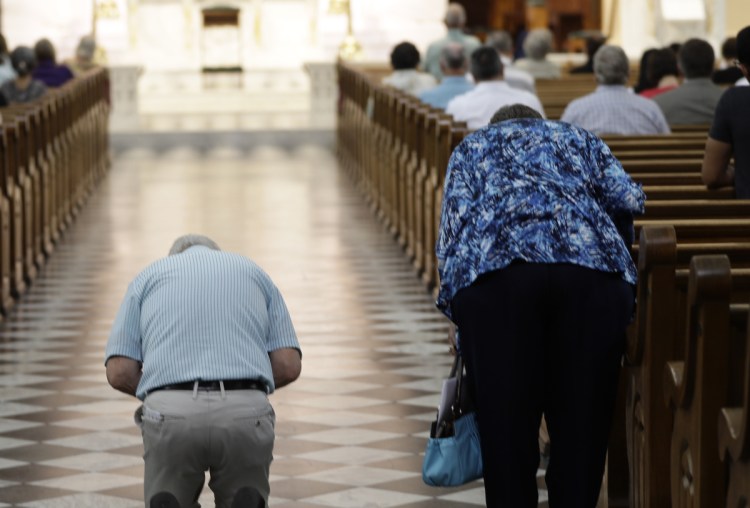As U.S. Catholic bishops gather for their national assembly this week, the clergy sex abuse crisis dominates their agenda amid calls from critics that church leaders finally bring about meaningful reforms to root out misbehaving priests.
The three-day assembly that starts Monday in Baltimore comes after a series of abuse scandals this year that have been stunning in their magnitude and number. Bishops have several reforms under consideration to craft a stronger response to the scandals, but some Catholic activists are demanding further steps, including releasing the names of all clergy accused of abuse and giving a greater voice to abuse victims. One coalition of concerned Catholics, the 5 Theses movement, plans to post its proposals for reform on church doors in Baltimore and elsewhere Sunday.
The abuse crisis is foremost among several challenges confronting Catholic leaders, who face conflicting pressures on the role of women and LGBT people in the church. And even though the Catholic population in the U.S. has been growing, most Catholics attend Mass rarely, and the number of active priests and nuns continues to decline.
Setting the tone for the national assembly, the president of the bishops’ conference, Cardinal Daniel DiNardo of Galveston-Houston, asked his fellow bishops to spend the preceding seven days in “intensified” prayer, fasting and reparation.
The bishops will consider new steps to police their own ranks during abuse cases, and will likely approve an investigation by lay law enforcement experts of the handling of the scandal surrounding the former cardinal in Washington, D.C.
“Bishops are under intense scrutiny and pressure to deliver on both of these items,” said the Rev. Thomas Berg, admissions director at St. Joseph’s Seminary in Yonkers, New York.
In July, Pope Francis removed U.S. church leader Theodore McCarrick as a cardinal after church investigators said an allegation that he groped a teenage altar boy in the 1970s was credible. Subsequently, several former seminarians and priests reported that they had been abused or harassed by McCarrick as adults, triggering debate over who might have known and covered up his misconduct.
In August, a grand jury report in Pennsylvania detailed decades of abuse and cover-up in six dioceses.
Send questions/comments to the editors.



Success. Please wait for the page to reload. If the page does not reload within 5 seconds, please refresh the page.
Enter your email and password to access comments.
Hi, to comment on stories you must . This profile is in addition to your subscription and website login.
Already have a commenting profile? .
Invalid username/password.
Please check your email to confirm and complete your registration.
Only subscribers are eligible to post comments. Please subscribe or login first for digital access. Here’s why.
Use the form below to reset your password. When you've submitted your account email, we will send an email with a reset code.